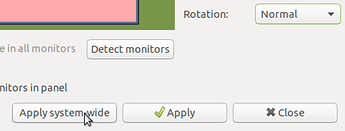Hi I just see that the output was removed from my mail. Here it is again:
Module Size Used by
ov2680 24576
videodev 225280 1 ov2680
mc 53248 2 videodev,ov2680
intel_rapl_msr 20480 0
mei_hdcp 24576 0
intel_xhci_usb_role_switch 16384 1
intel_atomisp2_pm 16384 0
st_accel_i2c 16384 0
st_sensors_i2c 16384 1 st_accel_i2c
st_accel 20480 1 st_accel_i2c
snd_sof_acpi 20480 0
st_sensors 24576 1 st_accel
industrialio_triggered_buffer 16384 1 st_accel
snd_sof_intel_byt 20480 1 snd_sof_acpi
kfifo_buf 16384 1 industrialio_triggered_buffer
snd_sof_intel_ipc 20480 1 snd_sof_intel_byt
snd_sof 106496 3 snd_sof_acpi,snd_sof_intel_byt,snd_sof_intel_ipc
snd_sof_xtensa_dsp 16384 1 snd_sof_acpi
autofs4 45056 2
ip_tables 32768 0
x_tables 40960 1 ip_tables
lp 20480 0
ppdev 24576 0
parport_pc 40960 0
parport 53248 3 parport_pc,lp,ppdev
sch_fq_codel 20480 2
arc4 16384 0
pcbc 16384 0
nls_iso8859_1 16384 1
binfmt_misc 24576 1
bnep 24576 0
cmac 16384 0
ccm 20480 6
rfcomm 81920 0
snd_hdmi_lpe_audio 28672 2
intel_powerclamp 20480 0
coretemp 20480 0
kvm_intel 286720 0
joydev 24576 0
snd_soc_sst_cht_bsw_rt5645 28672 3
kvm 655360 1 kvm_intel
irqbypass 16384 1 kvm
punit_atom_debug 16384 0
wmi_bmof 16384 0
axp288_fuel_gauge 28672 0
axp20x_pek 16384 0
crct10dif_pclmul 16384 1
crc32_pclmul 16384 0
axp288_charger 24576 0
axp288_adc 16384 0
extcon_axp288 20480 0
mmc_block 49152 3
industrialio 73728 7 axp288_adc,industrialio_triggered_buffer,st_sensors,kfifo_buf,st_accel_i2c,axp288_fuel_gauge,st_accel
roles 16384 2 extcon_axp288,intel_xhci_usb_role_switch
ghash_clmulni_intel 16384 0
iwlmvm 380928 0
mac80211 843776 1 iwlmvm
i915 1982464 3
libarc4 16384 2 mac80211,arc4
aesni_intel 372736 4
glue_helper 16384 1 aesni_intel
crypto_simd 16384 1 aesni_intel
i2c_algo_bit 16384 1 i915
cryptd 24576 2 crypto_simd,ghash_clmulni_intel
intel_cstate 20480 0
iwlwifi 335872 1 iwlmvm
drm_kms_helper 184320 1 i915
syscopyarea 16384 1 drm_kms_helper
sysfillrect 16384 1 drm_kms_helper
sysimgblt 16384 1 drm_kms_helper
fb_sys_fops 16384 1 drm_kms_helper
mei_txe 28672 1
cfg80211 704512 3 iwlmvm,iwlwifi,mac80211
drm 487424 4 drm_kms_helper,i915
lpc_ich 24576 0
processor_thermal_device 24576 0
intel_soc_dts_iosf 20480 1 processor_thermal_device
mei 106496 3 mei_hdcp,mei_txe
intel_rapl_common 24576 2 intel_rapl_msr,processor_thermal_device
wmi 32768 1 wmi_bmof
snd_intel_sst_acpi 20480 1
snd_intel_sst_core 61440 1 snd_intel_sst_acpi
snd_soc_sst_atom_hifi2_platform 110592 2 snd_intel_sst_core
snd_soc_acpi_intel_match 32768 2 snd_sof_acpi,snd_intel_sst_acpi
snd_soc_acpi 16384 4 snd_sof_acpi,snd_soc_acpi_intel_match,snd_intel_sst_acpi,snd_soc_sst_cht_bsw_rt5645
snd_seq_midi 20480 0
video 49152 1 i915
snd_seq_midi_event 16384 1 snd_seq_midi
snd_soc_rt5645 172032 2 snd_soc_sst_cht_bsw_rt5645
spi_pxa2xx_platform 28672 0
snd_soc_rl6231 20480 1 snd_soc_rt5645
snd_rawmidi 36864 1 snd_seq_midi
snd_soc_core 241664 4 snd_sof,snd_soc_sst_atom_hifi2_platform,snd_soc_rt5645,snd_soc_sst_cht_bsw_rt5645
gpio_keys 20480 0
axp20x_i2c 16384 0
axp20x 32768 1 axp20x_i2c
input_leds 16384 0
snd_compress 24576 1 snd_soc_core
snd_seq 69632 2 snd_seq_midi,snd_seq_midi_event
ac97_bus 16384 1 snd_soc_core
i2c_hid 28672 0
hid_multitouch 28672 0
snd_pcm_dmaengine 16384 1 snd_soc_core
snd_seq_device 16384 3 snd_seq,snd_seq_midi,snd_rawmidi
snd_pcm 106496 7 snd_sof,snd_hdmi_lpe_audio,snd_soc_sst_atom_hifi2_platform,snd_soc_core,snd_soc_rt5645,snd_soc_sst_cht_bsw_rt5645,snd_pcm_dmaengine
snd_timer 36864 2 snd_seq,snd_pcm
snd 90112 19 snd_seq,snd_seq_device,snd_timer,snd_compress,snd_hdmi_lpe_audio,snd_soc_sst_atom_hifi2_platform,snd_soc_core,snd_pcm,snd_rawmidi
dw_dmac 16384 6
soundcore 16384 1 snd
dw_dmac_core 28672 1 dw_dmac
8250_dw 16384 0
sdhci_acpi 24576 0
sdhci 65536 1 sdhci_acpi
int3400_thermal 20480 0
int3403_thermal 16384 0
acpi_thermal_rel 16384 1 int3400_thermal
int340x_thermal_zone 16384 2 int3403_thermal,processor_thermal_device
soc_button_array 20480 0
acpi_pad 184320 0
intel_int0002_vgpio 16384 1
mac_hid 16384 0
hid_generic 16384 0
usbhid 57344 0
hid 131072 4 i2c_hid,usbhid,hid_multitouch,hid_generic
btusb 57344 0
btrtl 24576 1 btusb
btbcm 16384 1 btusb
btintel 24576 1 btusb
bluetooth 577536 9 btrtl,btintel,btbcm,bnep,btusb,rfcomm
ecdh_generic 16384 1 bluetooth
ecc 28672 1 ecdh_generic
modinfo ov2680
filename: /lib/modules/5.4.15-050415-generic/kernel/drivers/media/i2c/ov2680.ko
license: GPL v2
description: OV2680 CMOS Image Sensor driver
author: Rui Miguel Silva <[email protected]>
srcversion: 74D4897303DE478B4401444
alias: of:N*T*Covti,ov2680C*
alias: of:N*T*Covti,ov2680
depends: videodev,mc
retpoline: Y
intree: Y
name: ov2680
vermagic: 5.4.15-050415-generic SMP mod_unload
signat: PKCS#7
signer:
sig_key:
sig_hashalgo: md4

